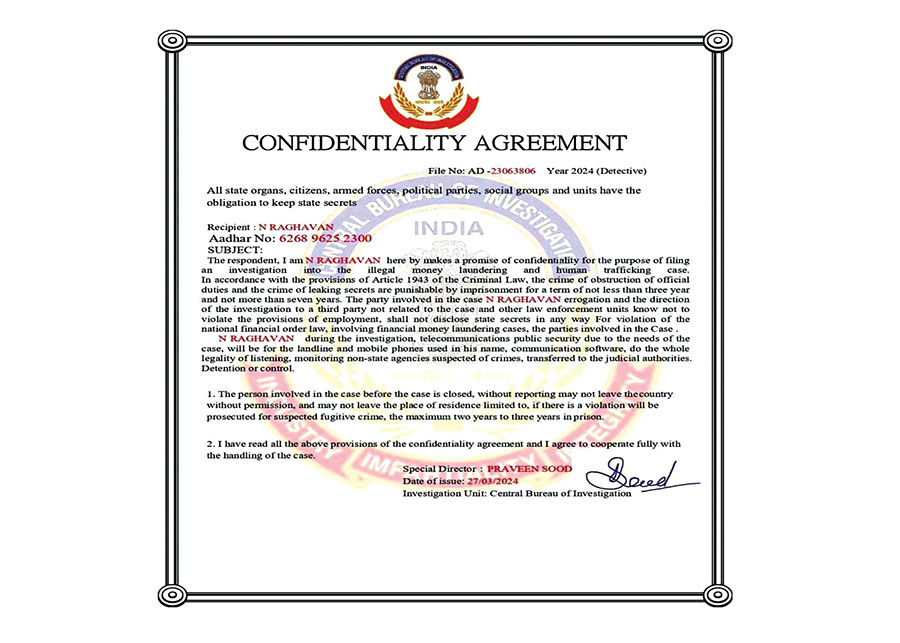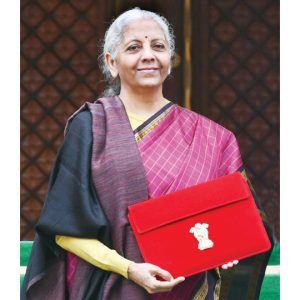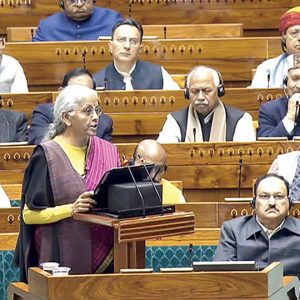A city pharmacist recounts his experience with a fraudulent caller
Mysore/Mysuru: Cybercrimes are evolving daily, with perpetrators devising new fraudulent methods to deceive unsuspecting individuals. These criminals meticulously gather information and execute their schemes, with even the slightest oversight leading to severe repercussions, including potential loss of life for vulnerable targets.
To deceive, these fraudsters go to great lengths, replicating logos of reputable organisations like the Delhi Police, Intelligence Bureau, Airport Security and Customs Department. While their presented information may seem legitimate initially, closer examination reveals discrepancies.
Exploiting vulnerabilities, they coerce hefty payments under the guise of verification fees, swiftly draining bank accounts. Unfortunately, even educated individuals fall victim to these schemes, as fraudsters often target those with financial means.
The most recent cyber fraud incident in Mysuru involved pharmacist N. Raghavan, proprietor of Raghulal & Co, who narrowly avoided falling victim to financial fraud thanks to his vigilance.
According to Raghavan, he received a call yesterday morning from the number +91 85280-83919, purportedly from Delhi.
Call regarding parcel
The caller claimed that a parcel, supposedly booked by Raghavan, contained 16 duplicate passports, 58 ATM cards and 140 grams of MDMA, intercepted by the Customs Commissioner at the Indira Gandhi International Airport in Delhi on its way to Malaysia.
Stressing the need for parcel verification, the caller provided confidential details, including Raghavan’s Aadhaar number, mobile number, receiver’s name and address, transaction ID number, parcel number, and dispatch date of 16-3-2024.
The caller informed Raghavan that the parcel and its contents required further investigation and requested his cooperation. Subsequently, the caller sent Raghavan an arrest warrant via WhatsApp under IPC sections 359, 360, 364A, 370, 390, 400, 411, 413 and 414. Claiming that the warrant was issued by a Judicial Magistrate First Class in New Delhi, the caller stated that it had been handed over to the Connaught Place Police Station for execution.
Money laundering charge
The caller laid a firm trap, telling Raghavan that it had been discovered that he (Raghavan) had obtained a loan from HDFC Bank for the purchase of a house and a car. However, an official named Sanjay Singh from HDFC Bank in Mumbai had purportedly been utilising Raghavan’s documents to open an account in his name and conduct money laundering activities.
The caller said that Raghavan, having authorised Sanjay Singh to conduct bank transactions, inadvertently enabled Singh to exploit his identity for illicit financial activities. Singh allegedly conducted transactions totalling approximately Rs. 380 crore in money laundering schemes using Raghavan’s account, with Rs. 38 crore being transferred to Raghavan’s account as part of this fraudulent operation.
The caller informed Raghavan that an investigation into Sanjay Singh’s illegal activities was currently underway. Consequently, IPC Sections 411, 413 and 414 had been filed, and the Judicial Magistrate Court (First Class) in New Delhi had directed the Delhi Police to investigate the matter.

Threat of CBI
The caller informed Raghavan about the necessity to investigate illegal money transactions and a human trafficking case, indicating that the CBI would take over the case due to its sensitive nature. Subsequently, the caller sent a letter signed by CBI Director Praveen Sood, seeking further information about Raghavan’s other bank accounts and financial transactions. Raghavan, alert to the situation, disclosed to the caller that Praveen Sood was the former Mysuru City Police Commissioner and that he shared a close relationship with him.
Raghavan mentioned their long-standing friendship and frequent meetings for meals. Upon hearing this, the caller fell silent momentarily. Sensing Raghavan’s familiarity with Praveen Sood, the caller’s aggressive demeanour softened considerably.
Alertness prevented fraud
Realising the suspicious nature of the call, Raghavan kept the anonymous caller on hold and promptly contacted Somashekhar from the Cyber Crime Division at Vontikoppal Police Station to report the number. Upon returning to the call, the caller inquired why he had been placed on hold, to which Raghavan attributed it to an automatic glitch.
The caller then reassured Raghavan, suggesting that the parcel may have been mistakenly addressed to him and that a thorough investigation would be conducted to close the case. With that, he promptly ended the call.
Later, Somashekar informed Raghavan that the caller had been identified as Anil Kumar, son of Babu Singh from Jalakhanapura, Uttar Pradesh. Suspecting it to be a scam, he cautioned Raghavan to exercise vigilance and refrain from divulging any information to the caller.
Call from FedEx!
Nandini Srinivasan, a reader of Star of Mysore, shared her experience where she received a suspicious call on Mar. 21. The caller claimed to be from FedEx company, informing her that a parcel she sent to Iraq from Mumbai had been rejected and required further explanation. The caller instructed her to press 1 for more details.
Upon pressing 1, a person on the line mentioned Nandini’s name and phone number, adding to the authenticity of the call. However, upon realising the dubious nature of the call, Nandini promptly expressed her suspicions and refused to engage further. The call was abruptly disconnected thereafter.
Nandini lost the number from which the call originated, highlighting the challenges faced in tracking and reporting such fraudulent activities.
How do scammers access confidential data?
Speaking to Star of Mysore, Raghavan raised a pertinent question regarding the alarming ease with which scammers access sensitive information such as mobile numbers, Aadhaar numbers and bank details. Highlighting the common practice of banks and reputable institutions requesting Aadhaar numbers for transactions or other purposes, Raghavan questioned how scammers acquire such detailed information, including mobile numbers.
Furthermore, he pointed out that many companies, including those affiliated with banks, often solicit information directly, without our explicit consent or awareness. This data is then sold to marketers and advertisers so that they use the data for targeted marketing. This, he emphasised, exposes individuals to potential cyber threats, as those with knowledge of information technology, including scammers, exploit these vulnerabilities to engage in cybercrime.
Warning about the global reach of cybercrime networks, Raghavan stressed the complexity involved in recovering lost funds from such scams. He cautioned that failure to exercise caution could result in significant financial losses and many unsuspecting individuals have already fallen prey to these sophisticated syndicate operations.








Recent Comments